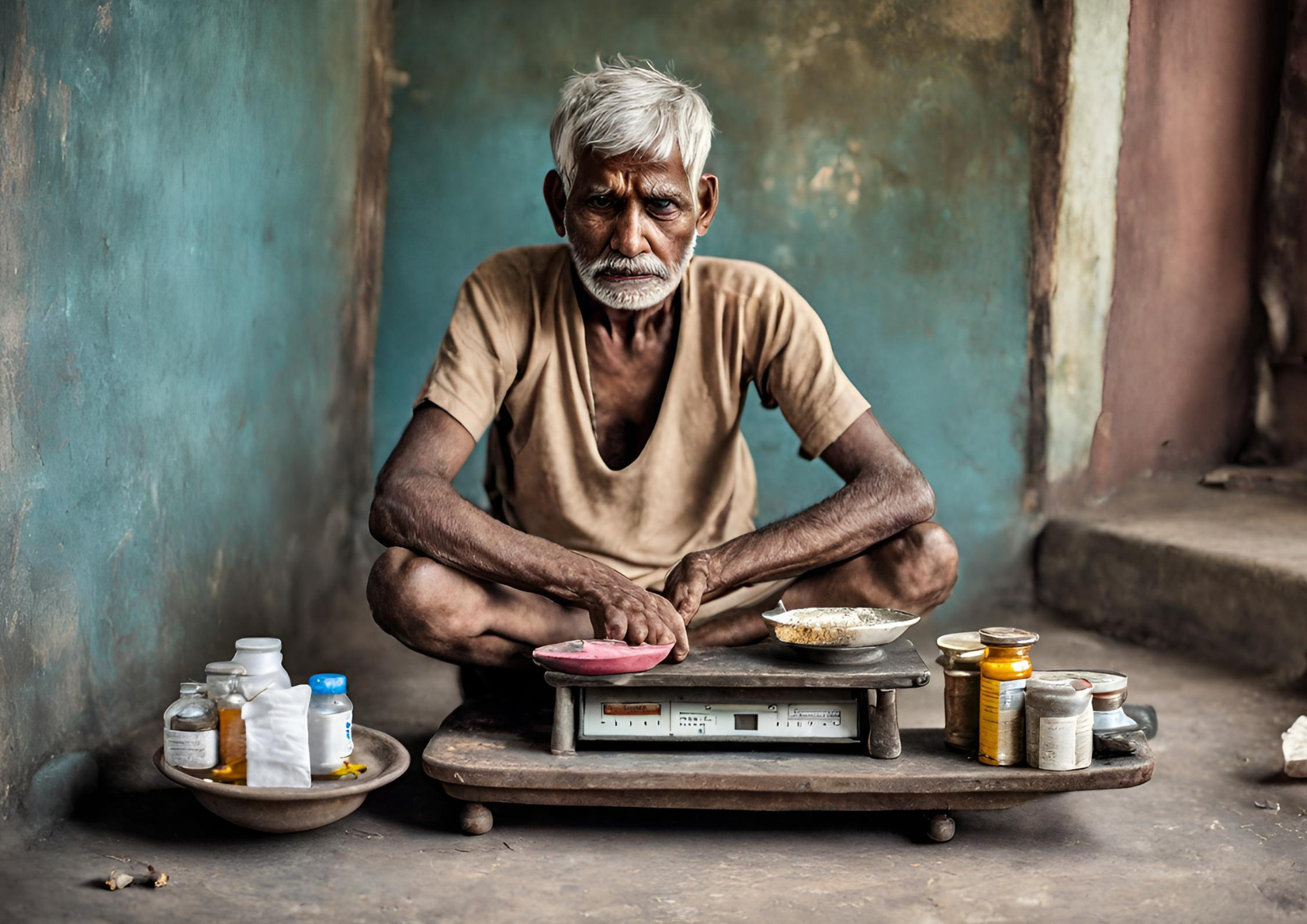The Scales of Health are Tilted in India
As artificial intelligence revolutionizes the delivery of healthcare services it is important to acknowledge the root of cause of diseases in order to improve health of people.

Sitting in the ward of a large hospital as a caregiver, I have been having a bird's eye view of the care-seeker world on the road below. The ambulance sirens, auto-rickshaws, unruly cabs, and pedestrians run helter-skelter to get the first slot of provider attention. I did this 10 years ago, and am surprised to see that the need is a lot more today than then.
Sadly, the reservoir of illness has increased, with a proportionate demand for care. The world is teeming with illness. There are many new causes of diseases that we are consciously underestimating under the pretext of human development. The Global Burden of Disease study charts the trajectory of uncontrolled human diseases, as we remain smug and celebratory of what we call ‘revolutionary human progress’. We may be completely off the mark from a health point of view.
Non-communicable diseases, like diabetes, hypertension, heart disease, and cancer, now occupy nearly 60% of all illnesses. There are more acute and severe presentations than before. We have deployed monitors, new drugs, sensors, and apps, with scant attention to prevention. These, however, do not seem to be helping. The pool of these diseases is still enlarging.
At the same time, India is also suffering from a fatal disease called Automobilemia. Rising fatal and debilitating road accidents, vehicular pollution, ambulance delays due to excessive traffic, and rising lung cancers among non-smokers; these problems do not seem to touch the common sense of the lawmakers who revel in the thriving automotive industry. At huge costs to the health of the citizens. We are burning fossil fuels with a vengeance.
A new form of malnutrition, obesity, has emerged induced by the unregulated aggregator provision of anything, anytime, anywhere. More obese children and obese young adults cater to taste buds than the cells in their stomachs. Gut cancers, fatty livers, and obesity go unnoticed. We keep eating. At the same time, 6.7 million (67 lakh) children in India between 6 months and 2 years of age sleep with “zero food” in their stomachs as reported in a recent study.
The work-life imbalance has increasingly become a talking point. It is affecting sleep, peace, and happiness and depriving people of the rest they need. Deluge of information online, yet no holistic insights into what a good life is. Depression, maladjustment, and relational dysfunction are taking their toll.
I saw a post that predicted that Large Language Models, a type of artificial intelligence algorithm, are superior to human doctors in their clinical acumen. This is where we have reached. Move over human beings, machines will decide your destiny.
Meanwhile, the reservoir of human ill health will keep swelling, as we take the broader road of artificiality.
Edited by Parth Sharma.
Image made using Canva AI.

